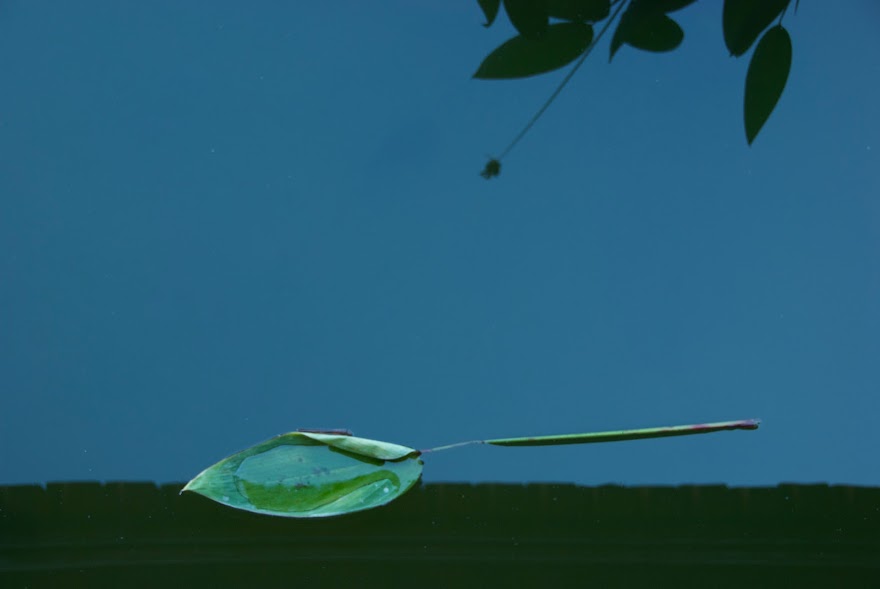I started to provision for the passage to South Africa today, aided by friends who are visiting from Perth and drove me to a supermarket where I bought three fifteen liter containers of water, three bags of trail mix, six bags of oatmeal, some protein bars and juice and a few other items.
The great fact of boat life for me in Darwin is the row to and from the shore. If I lived here I would not row an inflatable. I would get a sailing dinghy that I could sail off the beach or a rigid dinghy that rowed well, perhaps even a kayak. Yesterday and today, the row to and from shore was easy. I am grateful, for often it is an ordeal that drains me and has made it more difficult to recover from the recent sailing and to prepare for a 6,000 mile passage.
If all goes well, and that is by no means certain or even likely, I expect to reach South Africa in 45 or 50 days. The problem with sailing to South Africa from any distance is the same as sailing to New Zealand: you can encounter severe storms at any time of year.
I am provisioning for sixty days, though I have freeze dry dinners on board for many months beyond that.
Today I bought breakfast, enough uncooked oatmeal to see me through, some trail mix, though I may need more, boxes of orange juice, though I will need more, and instant coffee. I already have enough powdered milk and whey protein.
Each of the fifteen liter containers of water is about four U.S. gallons, and will, with my four five gallon jerry cans, provide enough water for sixty days. It is likely that you have never almost died of thirst. I have. Twice. Once when adrift after CHIDIOCK TICHBORNE pitch-poled. Again when I swam for twenty-six hours after sinking RESURGAM. Hunger is nothing. Thirst is terrible. I fear thirst.
Provisioning is easier for me than most. I have done this a long time and I can get buy with simplicity; but provisioning GANNET for this long is complicated because everything has to be stowed and moved around to make room for everything else. Still I sailed 4,000 miles non-stop from Singapore to Aden in CHIDIOCK TICHBORNE, the longest open boat passage ever made, and GANNET, if not exactly the QE2 compared to CHIDIOCK, is decidedly bigger and has a lid.
Tomorrow I will buy lunches. Canned tuna and salmon and chicken, which is more difficult to find in Australia than it was in New Zealand, and the French Laughing Cow cheese, which lasts forever without refrigeration for reasons I probably don’t want to know, and crackers for all the above.
My solar panels are due to arrive Wednesday. Installing them will not take long. I also need to make some minor repairs to the mainsail. Tie some high tech line around the mast to secure the lower few inches of the Tides Marine track until I can put cleats on the mast, which I should have done long ago.
I am not at this moment ready physically or mentally for a 6,000 mile passage. Perhaps that is because I am old and it takes me longer to recover. But then there is no base line. I believe I am correct that no one else has ever remotely considered a 6,000 mile passage in a Moore 24. It is a stretch. If the rows to and from shore don’t take too much out of me, I am aiming to sail for South Africa by June 30.
———
I have come to terms with the Yellowbrick. Originally it was intended for Carol, but many of you have written that you enjoy following it, and I must admit that once I reach port, I like reviewing the track myself.
A couple of readers have written questioning the Yellowbrick track crossing land. Unless you set the Yellowbrick to track continuously, which I do not because I pay a small amount every time it uploads a position and continuous tracking would quickly exhaust the battery, the Yellowbrick simply connects the dots between positions. Between them I often sailed around headlands, not across them.
The Yellowbrick also does not upload speed. It calculates time on distance, which means that if GANNET does not sail a straight line between positions, the speed will always be lower than her true speed.
I left Bundaberg with the Yellowbrick fully charged. When I arrived in Darwin its battery was at 39%. I will charge it again before I leave, but may have to charge it during the coming passage. I will set the intervals between positions to six hours as I have on other ocean passages.
———
From Gerard comes this poem written during WWII. As he pointed out it was written at a time when ships were lost every day. I thank him.

